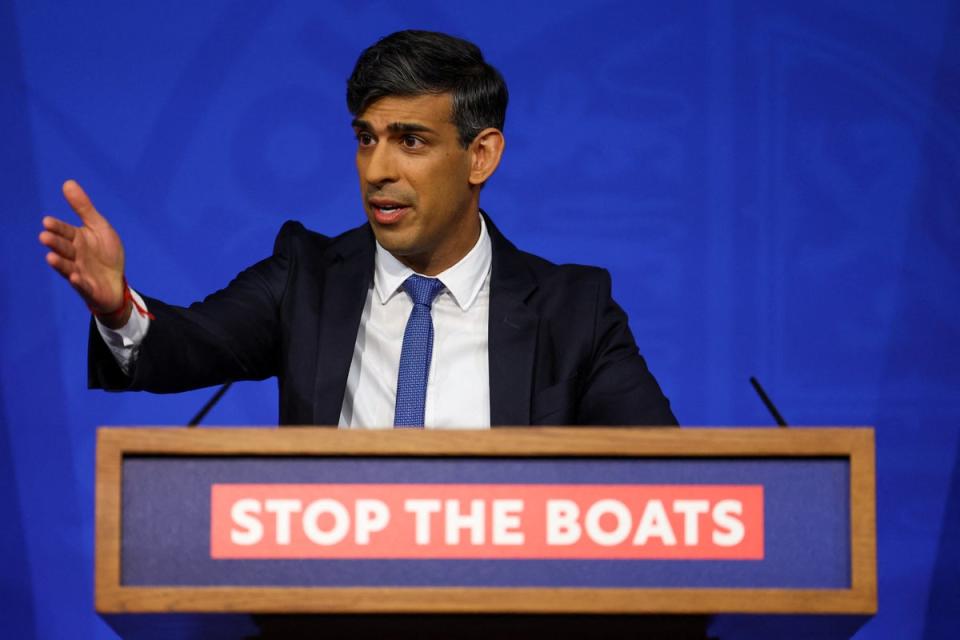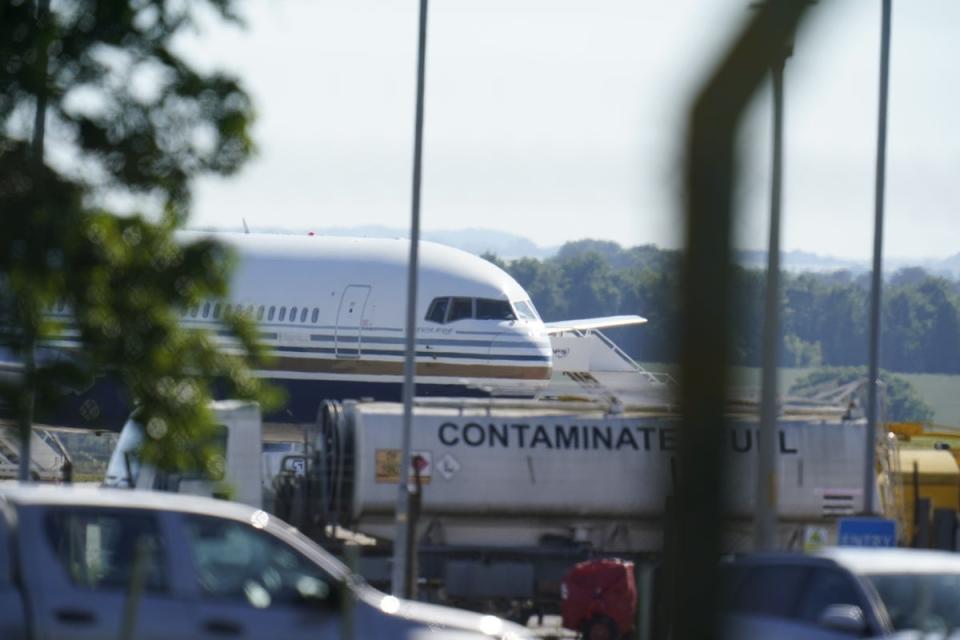How much does Rishi Sunak’s Rwanda deportation scheme cost?
- Oops!Something went wrong.Please try again later.
Rishi Sunak’s Rwanda deportation plan is poised to become law after peers ended their protracted tussle over the policy.
The Safety of Rwanda (Asylum and Immigration Bill) cleared Parliament shortly after midnight on Monday following a lengthy back and forth with the House of Lords in the last few months over amendments to the scheme.
The unelected chamber ended the deadlock after MPs rejected a requirement that Rwanda could not be treated as safe until the secretary of state, having consulted an independent monitoring body, made a statement to Parliament to that effect.
Preparations for the first flights to Rwanda are expected to begin within days, with asylum seekers who could be relocated being identified and potentially detained.
Charter planes are expected to leave for Rwanda in 10-12 weeks, with Mr Sunak promising “multiple flights a month”, although ministers conceded numbers being sent to Kigali will be small at first.
The Independent has revealed everything we know so far about the cost of the government’s flagship immigration plan

How much will it cost?
The government has already committed £290 million to the troubled scheme, with a further £100 million set to be spent on it over the next two years. The cost of Mr Sunak’s flagship scheme is expected to soar to half a billion pounds, an investigation by Whitehall’s spending watchdog found.
The government has refused to say how much more money, on top of the £290 million already confirmed, the UK had agreed to pay Rwanda under the deal.
The National Audit Office (NAO) report revealed millions more in spending, including £11,000 for each migrant’s plane ticket, while Rwanda will get £20,000 for each asylum seeker relocated there and a £120 million top-up once 300 have arrived.
When questioned by MPs last week, the Home Office’s most senior civil servant, permanent secretary Matthew Rycroft, indicated officials were seeking a drop in migrant Channel crossings of about 10,000 people to consider the Rwanda scheme value for money.
Dan Hobbs, the department’s director general for migration and borders, told the Public Accounts Committee: “It was never intended that this would be sought to be done at significantly lower cost to the UK. This was about having a quality scheme that delivered for the individuals and gave a five-year package of support.
“There are higher costs at the beginning due to the processing of the individuals and their assimilation and integration into Rwanda. Over the period of the five years, we would expect them to become more self-sufficient.”

What has Rishi Sunak said?
The prime minister said: “The passing of this landmark legislation is not just a step forward but a fundamental change in the global equation on migration.
“We introduced the Rwanda Bill to deter vulnerable migrants from making perilous crossings and break the business model of the criminal gangs who exploit them.
“The passing of this legislation will allow us to do that and make it very clear that if you come here illegally, you will not be able to stay.
“Our focus is to now get flights off the ground, and I am clear that nothing will stand in our way of doing that and saving lives.”
What criticism has the scheme faced?
Despite Mr Sunak’s relief at getting the legislation passed, his deportation plan has been roundly criticised by human rights groups as a “breach of international law”.
The charity Freedom from Torture, alongside Amnesty International and Liberty, criticised the government for ignoring the findings of the Supreme Court, which ruled the policy was unlawful in November.
The groups said the Bill poses “a significant threat to the rule of law” by undermining what protects people from an abuse of power by the state, and described Parliament as a “crime scene”.
They added that the UK is increasingly gaining a reputation for “playing fast and loose with its international obligations” and called for the asylum system to be rebuilt.
Additional reporting by PA

